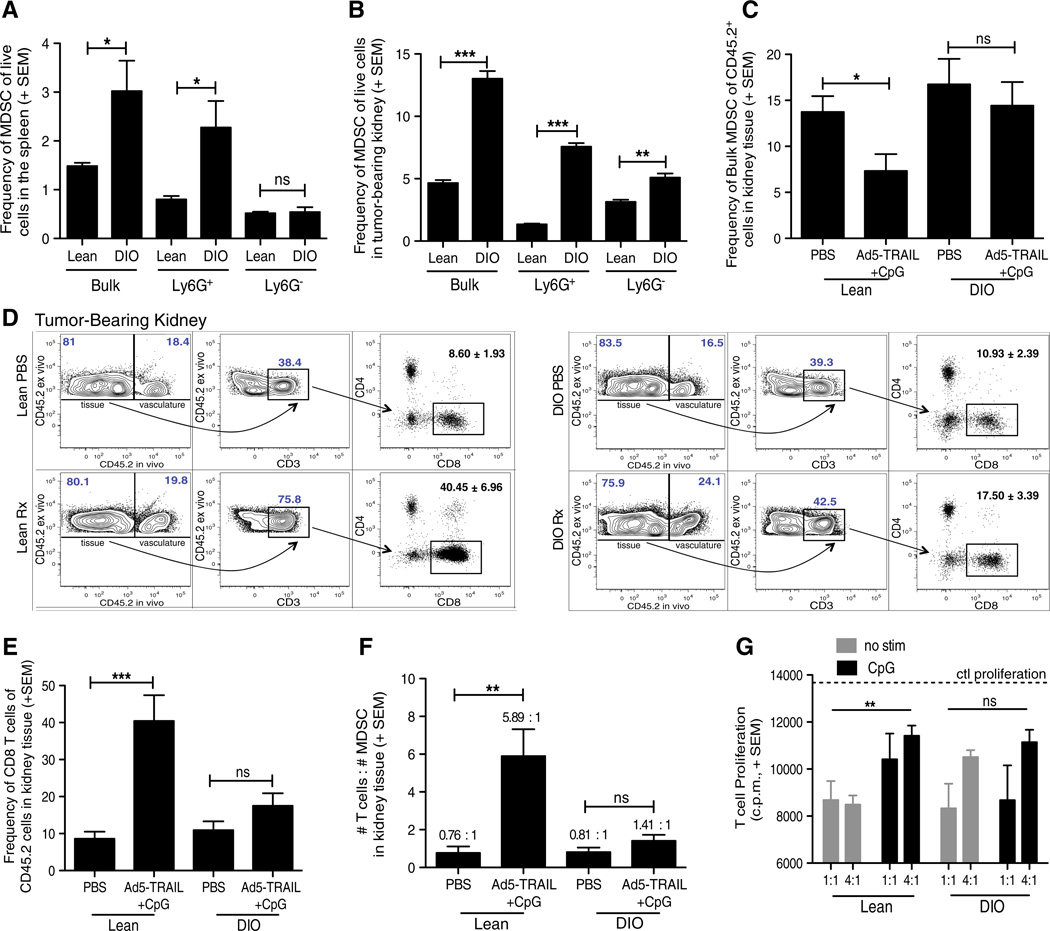Fig. 6.
DIO tumor-bearing mice have increased MDSC that do not respond to CpG resulting in a diminished antitumor response. Lean and DIO BALB/c mice were implanted IR with 2 × 105 Renca cells on day 0 and either left untreated (a, b), or treated with PBS or Ad5-TRAIL/CpG on day 7 (c–f). Spleens and tumor-bearing kidneys were harvested day 12, homogenized, and single-cell suspensions were made and stained for flow cytometric analyses. Mean (± SEM) frequency of MDSC in a spleens and b tumor-bearing kidneys. c–f Mean (± SEM) frequency, using i.v. staining, of c MDSC, d–e CD8+ T cells, and f ratio of the number of CD8+ T cells to the number of MDSC. Data are representative of two independent experiments with at least 4 mice/group/experiment. For all experiments, *p ≤ 0.05, **p ≤ 0.01, ***p ≤ 0.001 using Student’s t test. g Mean (± SEM) CD8+ T-cell proliferation from MACS-purified naïve WT BALB/c splenic CD8+ T cells stimulated with 1 µg/ml anti-CD3 mAb and cocultured with CpG-stimulated MACS-purified bulk MDSC from either lean or DIO tumor-bearing kidneys. Ratios represent #CD8+ T cells: #MDSC. Cocultures were pulsed with [3H] thymidine during the last 18 h of incubation to assess proliferation. Data are representative of two independent experiments in which samples were each run in triplicate, ***p ≤ 0.001 using 2-way ANOVA

